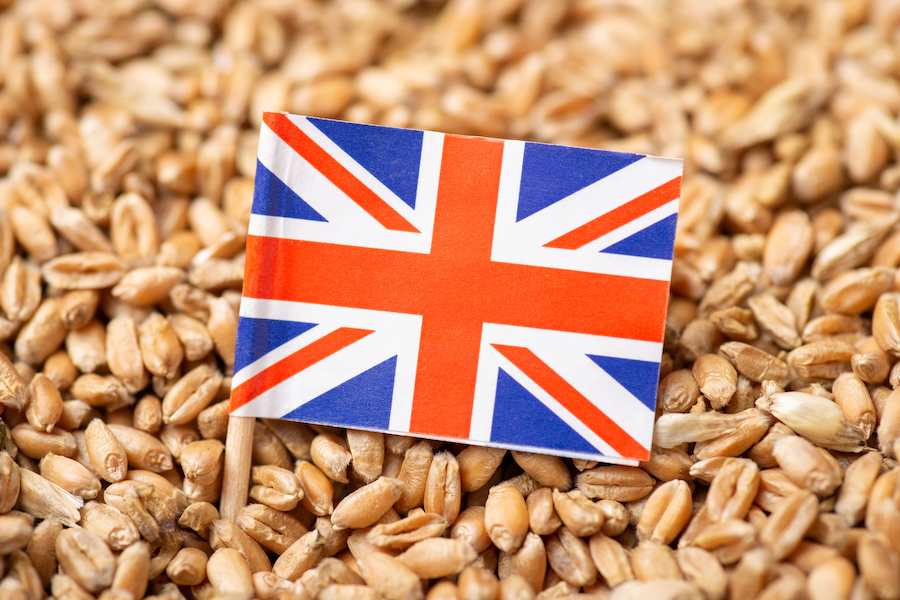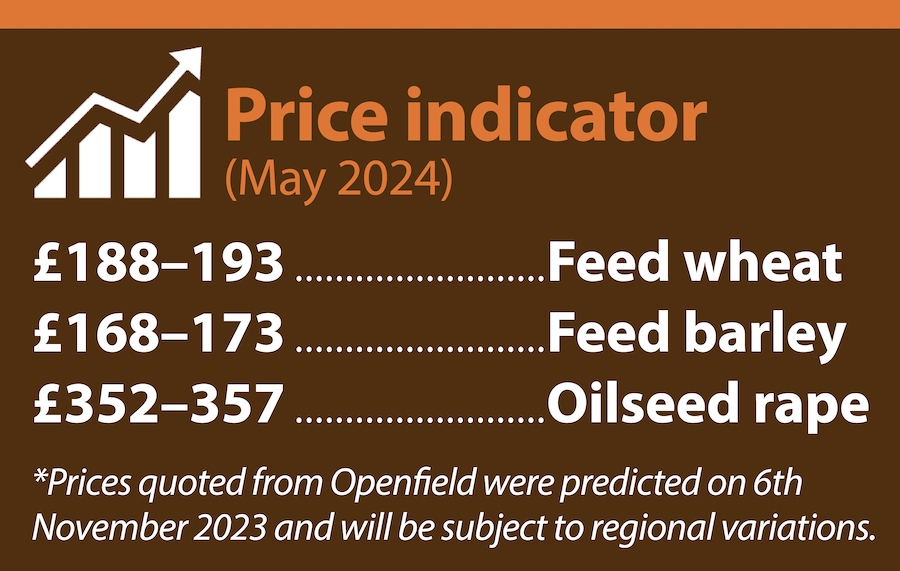What are we, as a nation, doing to protect our domestic cereal food security?
24th November 2023
With so much land being taken out of commercial cereal productions, when there is a call to feed the nation, what changes could you make, over what timelines, and at what cost?

If I was in a room full of farmers and asked the question “does the UK import more wheat, barley and maize than it exports”, what answer do you think they would give me? So asks Openfield’s head of research, compliance and shipping, Cecilia Pryce.
I have a feeling many may get the answer wrong. If you take all three commodities, the answer is, that since the 2012/13 crop year, we have only exported more than we have imported once. As a guide, if you look over these recent years, imports exceeded exports by an average of 1.7 million tonnes. If you take the data and just look at wheat and barley, we have been a net exporter for five out of the 11 years – but the fact is the UK needs maize, and it needs inelastic milling wheats.
The UK really relies on imports of cereals to meet its domestic demand and, with crop areas looking to be shrinking due to government incentives, weather seemingly becoming more extreme and less chemistry available to protect crops I feel we are heading into unchartered waters. The UK supplies just 1.8% of the world’s wheat crop; so what are we, as a nation, doing to protect our domestic cereal food security?
The questions are also a concern for domestic consumers of raw cereals. After all, they need competitively priced grain to compete – be that in supplying animal feed, ethanol or a loaf of bread – but as landowners and farmers, what are you doing? If land is pulled out of commercial cereal production, is it being converted to alternative use which can’t be reverted to soil, i.e. houses, roads, solar, woodland or to SFI schemes? Similarly, if we are pulling land out of production in this country for environmental reasons, what sustainability criteria do consumers require for their imports? Could we be offshoring our issues in order to meet CO2 targets? And how long before other grain exporters also pull land out of production leading to cereal prices rises due to shortage of supply?

It’s been discussed for many years, but I feel there is an increased need for the government to have a close look at domestic cereal and oilseed production while I also urge you as landowners to really think about how quickly you could ‘return to production’ some of your new land changes. Maybe it takes a few more years for the penny to drop, but when there is a call to feed the nation what changes could you make, over what timelines, and at what cost?
Would you like to be paid for putting oats or beans in a bag?
The UK Grain Testing Network is currently willing to pay farmers to send them bulk samples of oats and beans at £28.50 for each usable bag.
The team will use these samples to ring check hundreds of grain testing machines across the entire industry to ensure all grain testing equipment is calibrated and accurate for growers, merchants and end users such as millers, maltsters, and distillers right across the UK. Calibration testing maintains high standards and consistency right across the industry.
They would like you to send them bulk samples of the following:
- Beans: 40kg
- Oats: 60kg
If you would like to be paid to fill up some bulk sample bags, please email Sciantec’s Paul Allison at paul.allison@sciantec.uk.com, who will supply you with sacks, arrange collection and pay £28.50 for each usable 40kg and 60kg bulk sample.
Fertiliser matters
Global markets remain volatile as disruption and high gas prices continue to reduce current supply, comments Openfield’s fertiliser manger, Lucy Hassall. At the beginning of November, Israel cut the gas supply into Egypt and the country’s state-owned gas company cut gas supply to urea producers – forcing shutdowns. It is not known how long this will continue, and whilst there are stocks of product on the floor this is less concerning, but as we see demand increase, and should India tender for more tonnage in the near future, it will almost certainly lead to firmer replacement costs into the UK.
We continue to see production curtailment of ammonium nitrate in Europe due to the cost of gas, and Lithuania has recently shut down ammonia production at one of its plants for the next seven months. CF is now offering UK nitrogen for March only, and any growers looking for spring delivery of this could benefit from covering tonnes.

